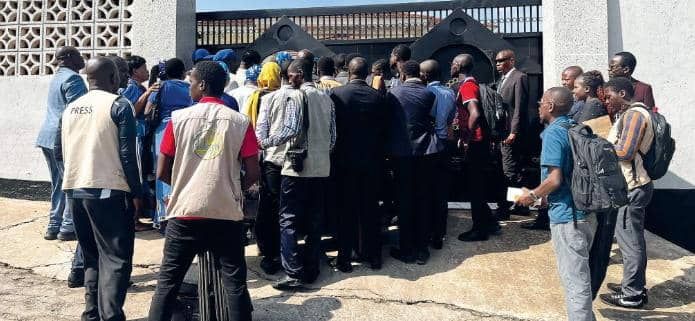By Burnett Munthali
The incoming Democratic Progressive Party (DPP) administration has come under fire for the manner in which President-elect Peter Mutharika’s first press conference was handled in Blantyre on Friday.
The event, which was meant to mark Mutharika’s first public engagement since his electoral victory, was dominated by party functionaries who outnumbered journalists in attendance.
The press conference took place at Mutharika’s private residence in Nyambadwe, where entry was tightly controlled, raising concerns about transparency and media freedom.
Several journalists were reportedly denied entry at the gates, leaving many in the media fraternity questioning the administration’s commitment to open communication.

The exclusion of sections of the press has already sparked criticism from media watchdogs and civil society organizations, who argue that the DPP must set the right tone for governance by embracing accountability.
In addition to Mutharika, the event was attended by Alliance for Democracy (Aford) president Enoch Chihana, reflecting the political alliances that helped secure the DPP’s victory.
Also present was DPP secretary general Peter Mukhito, who is expected to play a central role in shaping the party’s messaging and communication strategy in the new administration.
Observers say that the decision to restrict access risks alienating the media and undermining Mutharika’s stated commitment to inclusive governance.
As Malawi transitions to a new government, many are now calling on the DPP leadership to ensure that press freedoms are safeguarded and that the administration demonstrates openness in its engagements with the public.
The way in which Mutharika’s first press conference was managed sets an important precedent for how the DPP intends to engage with the media and the wider citizenry.
Restricting journalists while privileging party loyalists sends the wrong signal at a time when Malawians are looking for transparency, accountability, and a break from the practices that eroded trust in the previous administration.
If the DPP is serious about building credibility, it must recognize that media freedom is not a privilege but a cornerstone of democratic governance.
An open, inclusive relationship with the press will not only strengthen accountability but also help the new government build legitimacy and public confidence as it embarks on implementing its manifesto promises.



